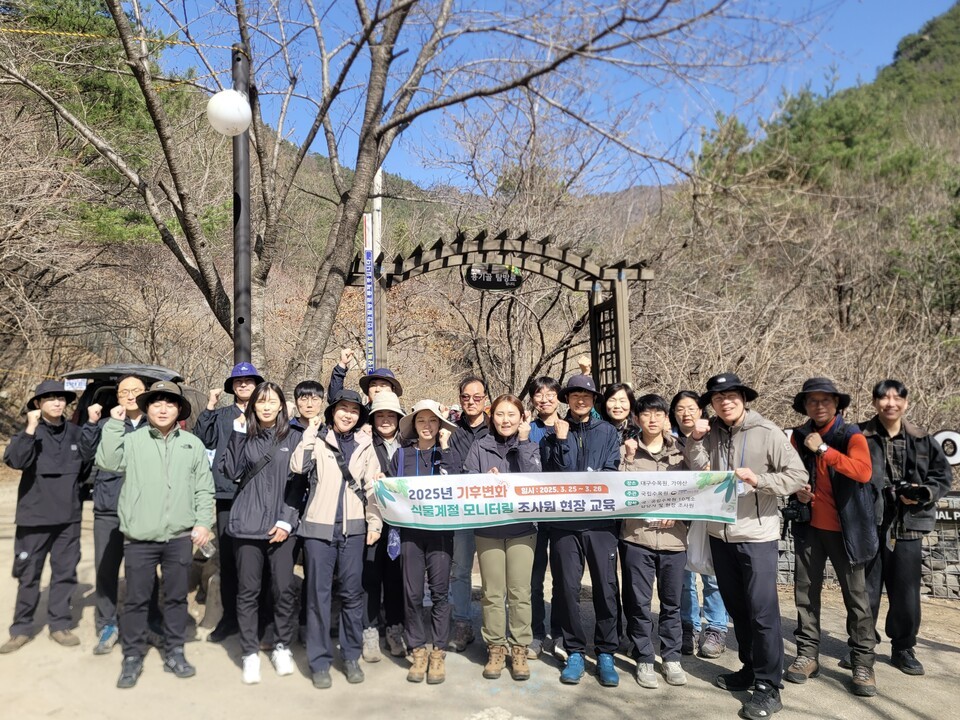
The Korea National Arboretum has collaborated with public arboreta across the country to conduct field training for monitoring plant phenological events in order to collect scientific evidence of climate change.
The training took place from March 25 to 26 at the Daegu Arboretum and Gayasan Mountain area, with participants including officials and monitors from the Korea National Arboretum and nine national arboreta. The purpose is to standardize plant phenological observation methods to enhance data accuracy and reliability, and to strengthen the capacity to respond to climate change.
The participating institutions include Mulhyanggi Arboretum, Gangwon Provincial Flower Garden, Daegu Arboretum, Gyeongnam Arboretum, Midongsan Arboretum, Geumgang Arboretum, Dea-a Arboretum, Wando Arboretum, and Hallasan Mountain Arboretum, totaling 10 institutions.
The training content consisted of sharing outcomes from the 2024 project on conserving and adapting forest plant species vulnerable to climate change, theoretical education on standard observation methods, and field data collection through practical exercises. During the practical session at Gayasan Mountain, monitors discussed methods for scientifically recording and managing observation data.
Since 2009, the Korea National Arboretum has been tracking long-term changes in climate by observing seasonal changes in plants, such as blooming times of spring flowers and peak foliage periods. This data is used in the forest industry sector’s ‘Climate Change Impact Assessment Report’ and is applied in policy formulation and strategic planning for response.
Director Lim Young-seok of the Korea National Arboretum commented, “This training is expected to improve the monitoring skills of the investigators and enhance research reliability through standardized data collection,” and added, “We plan to continue to cooperate with regional forest ecology management centers to strengthen the network and provide continuous education.”
The Korea National Arboretum is planning to increase collaboration with regional forest ecology management centers and improve the precision and sustainability of the observation network through ongoing investigator training.